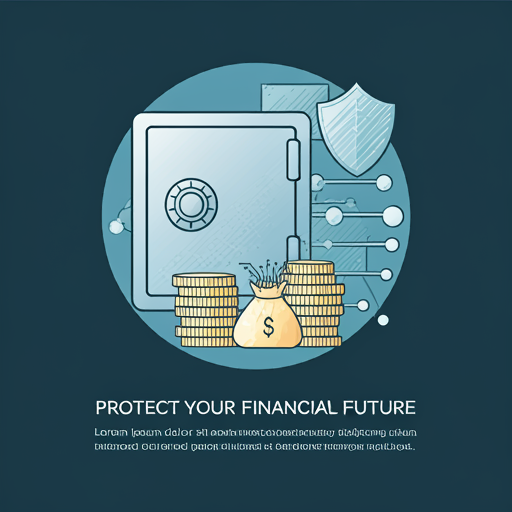Introduction to Cybersecurity in Finance
Importance of Cybersecurity in the Financial Sector
In
Overview of Cyber Threats in Cryptocurrency
Cryptocurrency faces numerous cyber threats that jeopardize financial assets. For instance, hacking incidents have surged, targeting exchanges and wallets. These breaches can lead to significant financial losses. Security measures are crucial in mitigating these risks. He must remain vigilant against evolving tactics. Awareness is key in this digital landscape. Phishing schemes also exploit user trust, often resulting in unauthorised access. This is a growing concern. Understanding these threats is essential for safeguarding investments. Knowledge empowers users to make informed decisions.
Common Cybersecurity Threats
Phishing Attacks and Social Engineering
Phishing attacks represent a significant threat in the financial sector. These attacks often involve deceptive emails that mimic legitimate institutions. He must verify the source before responding. Social engineering tactics further exploit human psychology to gain sensitive information. Trust is easily manipulated. Victims may unknowingly provide access to their accounts. Awareness and education are vital in combating these threats. Knowledge is power. Implementing robust security measures can mitigate risks effectively. Protecting assets is essential.
Malware and Ransomware Risks
Here are 10 trending article titles for a financial website based on the latest news and analysis: No input data
Best Practices for Safeguarding Assets
Implementing Strong Password Policies
Implementing strong password policies is ezsential for protecting financial assets. Effective strategies include using complex passwords , changing them regularly, and avoiding reuse across platforms. Here are key practices:
These measures significantly reduce the risk of unauthorized access. He should prioritize security. Regular audits of password strength can identify vulnerabilities. Awareness is crucial in this digital age.
Utilizing Two-Factor Authentication
Utilizing two-factor authentication (2FA) enhances security for financial accounts. This method requires a second verification step beyond just a password. He should enable 2FA wherever possible. It significantly reduces the risk of unauthorized access. Many platforms offer various 2FA options. Users can choose from SMS codes or authentication apps. This adds an extra layer of protection. Awareness of these tools is essential. Security should always be a priority.
Secure Storage Solutions
Hot Wallets vs. Cold Wallets
Hot wallets are connected to the internet, making them convenient for transactions. However, this connectivity increases vulnerability to cyber attacks. He should consider the risks carefully. Cold wallets, on the other hand, are offline storage solutions. They provide enhanced security against hacking attempts. This method is ideal for long-term asset storage. Users must weigh accessibility against security needs. Knowledge of both options is crucial. Make informed decisions for asset protection.
Choosing the Right Wallet for Your Needs
Choosing the right wallet depends on individual needs and usage patterns. He must assess transaction frequency and security requirements. Hot wallets offer convenience for frequent transactions. They are easy to access. Cold wallets provide superior security for long-term storage. This option is safer against cyber threats. Users should evaluate their priorities carefully. Security is paramount.
Regulatory Compliance and Standards
Understanding GDPR and Data Protection Laws
Understanding GDPR and data protection laws is essential for compliance in the financial sector. These regulations govern how personal data is collected and processed. He must ensure that his organization adheres to these standards. Non-compliance can result in significant fines. Organizations are required to implement robust data protection measures. This includes conducting regular audits and risk assessments. Awareness of these laws is crucial for safeguarding client information. Knowledge is power in this context.
Industry Standards for Financial Institutions
Industry standards for financial institutions are critical for maintaining trust and integrity. These standards encompass various regulations, including anti-money laundering and data protection. He must ensure compliance to avoid legal repercussions. Adhering to these standards enhances operational efficiency. Regular training and updates are necessary for staff. This fosters a culture of compliance. Awareness of industry standards is essential for success. Knowledge leads to better practices.
Incident Response and Recovery
Developing an Incident Response Plan
Developing an incident response plan is essential for mitigating risks in financial institutions. Key components include:
He must ensure all staff are trained. Regular drills can enhance preparedness. This proactive approach minimizes damage during incidents. Awareness is crucial for effective response. Knowledge empowers better decision-making.
Steps to Take After a Cybersecurity Breach
After a cybersecurity breach, immediate action is crucial. He must first contain the breach to prevent further damage. Next, conducting a thorough investigation is essential. This helps identify the source and impact. Communication with stakeholders is also necessary. Transparency builds trust during crises. Implementing corrective measures is vital for future prevention. Awareness is key in recovery.
The Future of Cybersecurity in Cryptocurrency
Emerging Technologies and Their Impact
Emerging technologies are reshaping the landscape of cybersecurity in cryptocurrency. Innovations such as blockchain and artificial intelligence enhance security measures. They provide better transaction verification and fraud detection. He must stay informed about these advancements. Additionally, quantum computing poses new challenges for encryption methods. This could impact data security significantly. Awareness of these trends is essential for effective risk management. Knowledge is crucial in this evolving field.
Preparing for Evolving Cyber Threats
Preparing for evolving cyber threats is essential in the cryptocurrency landscape. He must regularly update security protocols to address new vulnerabilities. Implementing advanced threat detection systems is crucial. This helps identify potential breaches early. Additionally, continuous employee training enhances awareness of cyber risks. Staying informed about emerging threats is vital. Awareness leads to better protection strategies.

Leave a Reply